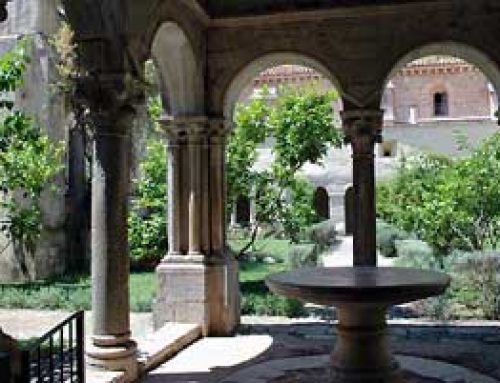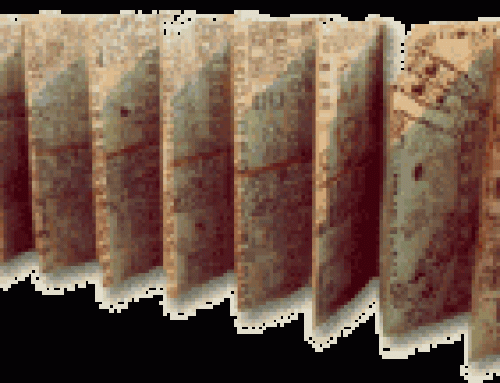
A portrait of Petrarch
Petrarch (Francesco Petrarca in Italian) was born in 1304 AD in Arezzo, in northern Italy. His father was a lawyer, and when Petrarch was a teenager his father made him study law too. But Petrarch hated law. He just wanted to write poetry and read Latin books. Another young Italian writer who hated studying law, Boccaccio, became one of Petrarch’s close friends.
Petrarch’s parents died in 1326, when he was only 22 years old (People died younger then, so this wasn’t so unusual). Petrarch right away quit studying law and began studying to be a Christian priest. As a priest, Petrarch worked as an administrative secretary for the Pope in Avignon, in southern France. This job left Petrarch plenty of time he could spend writing and traveling around Europe, though he never left Europe to travel more widely through Islamic North Africa (even though there was a lot of sea trade between the Hafsids and Marinids and Italy) or the Mongol Empire.
Before Petrarch, most of the men who knew how to read and write in medieval Europe were Christian priests and monks and nuns, or Jewish rabbis, and these people were not interested in the writings of the old Greeks and Romans, because the Greeks and Romans were not Christians. But by 1270, Thomas Aquinas had shown that you could bring together the ideas of Aristotle and Christianity. Petrarch thought he could go on with other Greek and Roman writers and find more new ideas. So he traveled around Europe looking in libraries for old copies of Latin and Greek books. Petrarch found and owned a copy of Homer‘s Iliad and Odyssey, but he couldn’t read it because he didn’t know any Greek. He also found a copy of Cicero‘s letters to Atticus, which nobody had known about before.
In the three years 1348-1351, the bubonic plague killed many people in Italy, including Petrarch’s son and grandson, many of his friends, and a woman named Laura whom he loved. But Petrarch kept on travelling, looking for more Greek and Roman books to share with other scholars.
When Petrarch died in 1374, his collection of books went to the Italian city of Padua, where he lived. Sadly, Padua didn’t take care of the books, and they are not around anymore. But more importantly, he left Europeans much more interested in seeking out new knowledge and ideas than they had been before.
More about the Renaissance
Bibliography and further reading about Petrarch:




